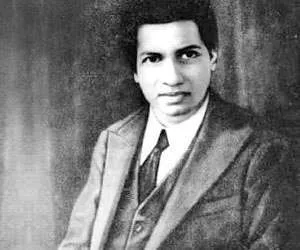The primary aim of BBA programs is to provide students with comprehensive education and training, equipping them with essential knowledge, analytical proficiency, and a managerial mindset essential for thriving in today’s fiercely competitive business landscape.
/*! elementor – v3.15.0 – 02-08-2023 */
.elementor-heading-title{padding:0;margin:0;line-height:1}.elementor-widget-heading .elementor-heading-title[class*=elementor-size-]>a{color:inherit;font-size:inherit;line-height:inherit}.elementor-widget-heading .elementor-heading-title.elementor-size-small{font-size:15px}.elementor-widget-heading .elementor-heading-title.elementor-size-medium{font-size:19px}.elementor-widget-heading .elementor-heading-title.elementor-size-large{font-size:29px}.elementor-widget-heading .elementor-heading-title.elementor-size-xl{font-size:39px}.elementor-widget-heading .elementor-heading-title.elementor-size-xxl{font-size:59px}
An Insight into BBA Program of IILM
The three-year full-time Program of BBA in IILM is an Undergraduate Program designed for young graduates seeking to enhance their education. It is specifically tailored to prepare students for advanced studies and is highly regarded as one of the best BBA courses in Delhi NCR.
Our BBA Program is aligned with IILM ethos and offers its students the freedom to select disciplines from diverse domains. Our educational approach empowers young graduates to develop a solid understanding of their chosen curriculum and excel in their respective fields.
IILM UBS Programs
Our Approach for BBA at IILM
At IILM, our focus lies in providing an exceptional BBA Program that fosters a profound understanding of the discipline through hands-on experience, practical training, internships (mandatory four-week component in the curriculum), presentations, industrial visits, and valuable interactions with esteemed professionals from the industry. Our comprehensive approach to learning enhances students’ employability and equips them to tackle the challenges that may arise in their future careers.
The BBA program aims to foster practical, effective, and strategic abilities in students, enabling them to enhance their aptitude for corporate management and achieve exceptional performance in executive leadership.
Our Programs include:
UBS currently offers two significant programs, each designed to provide valuable educational opportunities to students. The first program entails partnership with Swiss Business School (SBS). The second program encompasses a partnership with Monroe College New York. There are major specializations offered for each of these programs.
1. Partnership with Swiss Business School
This collaborative program with Swiss Business School (SBS) offers five major specializations.
A. BBA in Entrepreneurship
Our BBA in Entrepreneurship Program intends to give you detailed knowledge about the various dimensions of running a business through management of accounting, financials, information systems, marketing strategies, insights into entrepreneurship through case studies, project management, family business management and venture capital.
The course will equip you with all the required skills and knowledge to develop an entrepreneurial mindset.
Career Opportunities
You can start your venture, scale up your family businesses and be emerging entrepreneurs.
B. BBA in International Management
In the rapid evolution and growing complexities of the world, the nuances of changes faced by organizations are essential to be addressed in the international context.
BBA in International Management Program prepares you to be future business leaders by learning management in global business. Our curriculum enhances critical thinking, business management skills, and problem-solving. It inculcates detailed knowledge of foreign culture and management practices emphasizing international business and economics.
Careers Opportunities
You may plan for an international expansion of your family business, and you will have a lot of opportunities in companies that value training in international business.
C. BBA in Psychology
BBA in Psychology Program at IILM focuses on the significant psychological principles that help you in understanding human behaviors and their influence on the work atmosphere that assist in business enhancements.
With our BBA in Psychology Program, you can nurture superior social skills, practical business orientations, and a curious mind that will enable you to progress with an evidence-based approach to problem-solving in varied industries.
Career Opportunities
Psychology with Industry will open a lot of exciting opportunities for you. You can pursue a career in the field of academics. Psychologists are required in multinational companies to understand market behaviors and consumer mindsets. There are a lot of possibilities in Artificial Intelligence, human-computer interactions, and data interpretations.
D. BBA in Communication
Our BBA in Communication Program is a seamless blend of business and communication that will help you to get precise knowledge and awareness about communication in the corporate world.
Our course infuses the significance of organizational and global communication. It imparts the ability to influence and persuade through communication for professional accomplishment with emphasis on the skill that is crucial for the success of any business and understanding the business through diverse markets across the globe while developing strategies for brand building.
Career Opportunities
You can pursue a career in media, journalism, entertainment and academics.
E. BBA in Business Analytics
Our BBA in Business Analytics Program is intended to furnish students with the knowledge and abilities expected to flourish in the rapidly developing world of data-driven decision-making. This program prepares students to effectively address complex business challenges by combining business acumen and analytical expertise.
Career Opportunities
There are some of the exciting career paths available to BBA in Business Analytics graduates like Data Analyst, Business Intelligence Analyst, Market Research Analyst, Financial Analyst, Operations Analyst, Marketing Analyst, Data Scientist, Risk Analyst, E-commerce Analyst
2. Partnership with Monroe College New York
A. BBA in Business Management (BBA)
BBA in Business Management (BBA) of IILM is an accelerated program condenses a four-year degree into three years. Students can major in Business Management and choose from six minor specializations, including Business Analytics, Finance, Marketing, International Business, HR, and IT.
IILM UBS uses Blackboard, a cutting-edge Learning management system to enhance the learning experience through easy access to course materials and interactive tools.
This course will assist you to be well versed with skills and knowledge of insights on an organization. With its emphasis on an industry-focused program and comprehensive student-centric learning approach led by experienced industry professionals, this curriculum will help students jumpstart their careers in business.
Conclusion
Regarded as one of the top Undergraduate BBA courses in Delhi NCR, our programs at IILM are designed to offer exceptional opportunities to students. We prioritize global study visits, specialized mentoring for IILM Undergraduates, company visits, and support for the expansion of family businesses. Moreover, we provide chances for international transfers, empowering our students to realize their full potential and nurture their personal, intellectual, social, and interpersonal skills. Our aim is to instill confidence and cultivate a proactive mindset, enabling them to seize the best opportunities upon graduation.






















